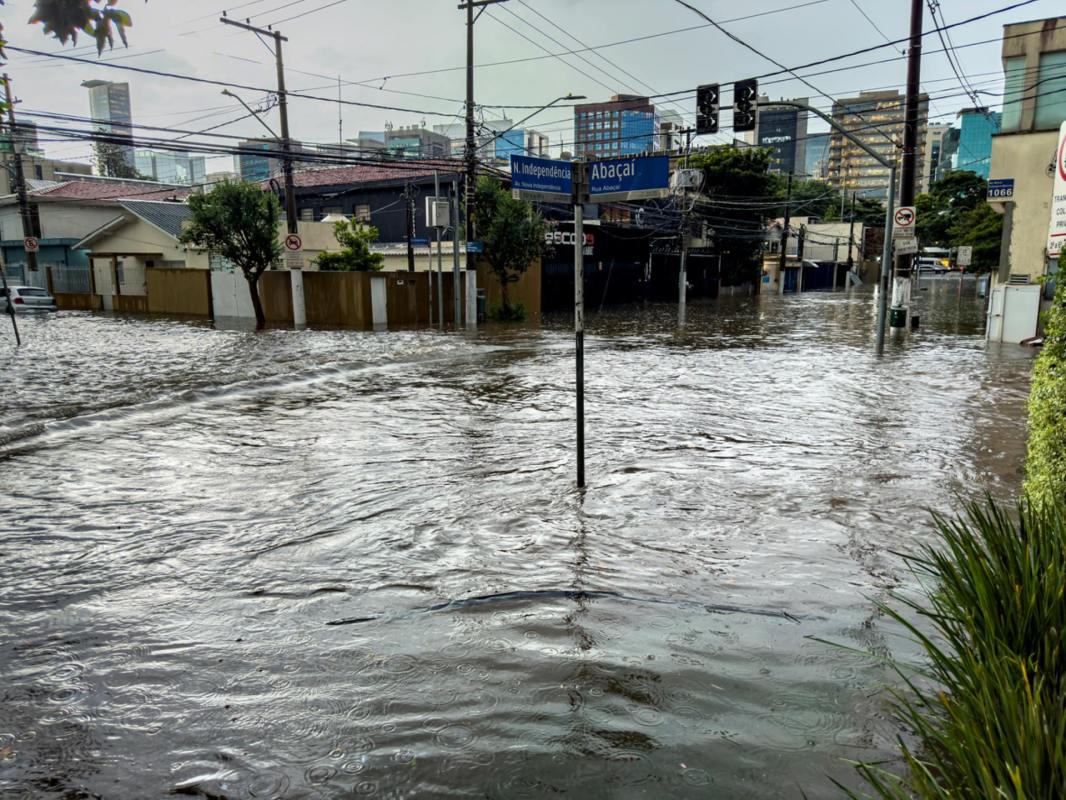Nightmare weather events are unfolding across the globe, and a flood in Brazil's Rio de Janeiro state is just the latest example.
Brazil was inundated with torrential rains the weekend of Jan. 13-14, and 12 people were killed, the Associated Press reported.
What happened?
In the country's third major flood in less than a year, heavy rainfall caused landslides and submerged neighborhoods, a hospital, a public transit line, and a highway. Three people died from being electrocuted, and 18 towns were at "high" risk of landslides over 24 hours after the storm, according to the AP.
In February 2023, 48 people were killed in flooding and landslides in Sao Paulo state, and 31 people died in September from flooding from a cyclone in southern Brazil, which also left 2,300 citizens homeless.
This time, one locale, Duque de Caxias, received 3.9 inches of rain in one day, the AP reported.
"We feel like animals," said Heloisa Regina, who slept on a pool table after her home and bar flooded. "It's not normal to live like this."
Nearby Ronaldo Gazolla Municipal Hospital lost power after its basement flooded, delaying all appointments by 15 days.
Why is this important?
The AP reported authorities conducted more than 200 rescue operations with ambulances, boats, drones, and aircraft, but at least one resident was disillusioned.
"We are completely abandoned," Duque de Caxias resident Eliana Vieira Krauss said. "Nothing has improved [since similar floods more than a decade ago]."
A 70-year-old, Nízia Maria Geralda Francisco, spent the night on a roof, according to the AP. It was surely not an uncommon occurrence.
"Humans are destroying nature, so this is what we're getting in return," she said.
What's being done?
Extreme rains have been increasing since the 1950s, according to the Center for Climate and Energy Solutions, which noted air's capacity for water vapor rises by 7% for each Celsius degree of warming.
C2ES stated that the real solutions to excess precipitation are divestment from dirty energy sources such as oil, gas, and coal and reducing other human-caused pollution.
Unless that happens, however, governments and other officials will have to make policy changes in the name of flood control, including infrastructure solutions, flood risk reduction incentives, and flood warning systems.
Phys.org named zoning and land-use regulation as ways to keep urban communities flood-free but also noted people "choose to live in flood-prone areas." Controlling that exposure is key since sea level rise and other climate issues are only increasing the terra firma that is susceptible to downpours.
Join our free newsletter for cool news and cool tips that make it easy to help yourself while helping the planet.









